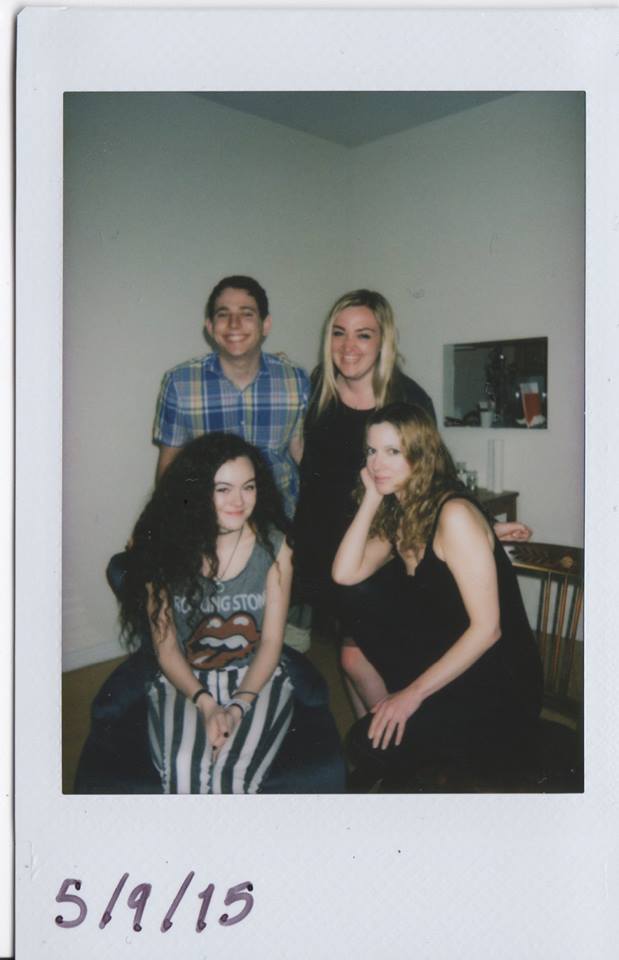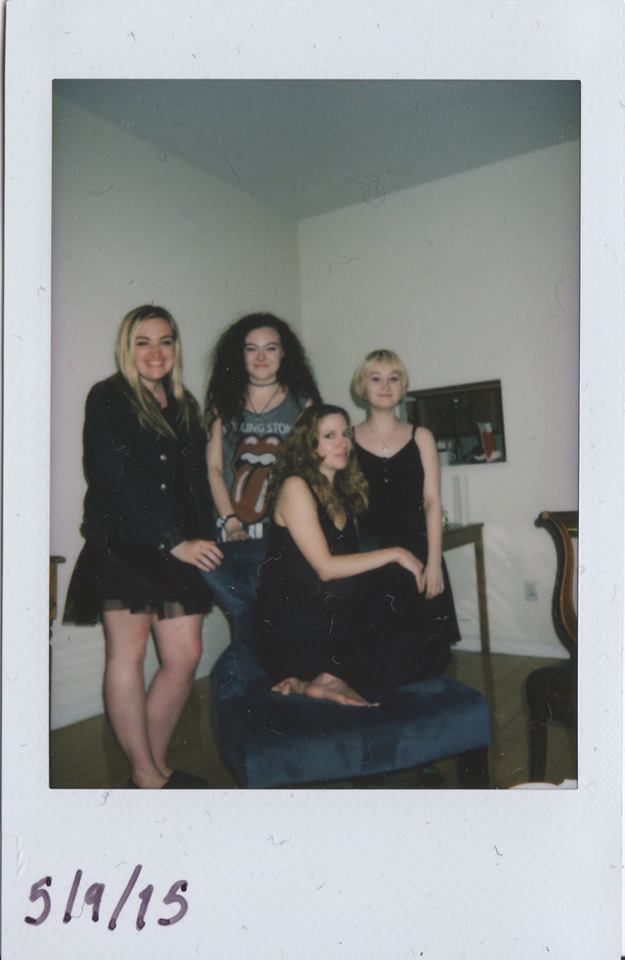This article was originally written for Queen Bitch Magazine in May 2015.
Francine Volpe, a New York City-based playwright, screenwriter, dramaturge and professor is currently a member of New Dramatists (and also one of my favorite people in the entire world). After graduating from NYU’s Tisch School of the Arts with a BFA in Dramatic Writing, Volpe furthered her studies at The Juilliard School with professors Marsha Norman and Christopher Durang. I was lucky enough to be placed under Francine’s tutelage during my freshman year at NYU, and needless to say to those who know her, Francine’s presence (as both an artist and a friend) in the lives of her students and peers is truly irreplaceable.
To those who are unfamiliar with you as a writer and an artist, how would you describe yourself and your work?
My plays take place at the intersection of class tensions and sexual tensions.
Tell us a little bit about your background as a person.
I grew up in Queens, where Queens borders Brooklyn, which is the home of the badass. I’d answered this in another interview once before this way: Joe Ramone, and of course his brother, John McEnroe, Salt n Pepa, Bob and Harvey Weinstein, John Frusciante, Paul Simon, anyone you know who’s a badass…grew up in Queens. Johnny Thunders! Yeah.
When did you realize that you wanted to be a writer, both in a general and dramatic context?
Well, I think that I’m a person who is very sensitive, and I think that the only requirement for being an artist is that you express the way you feel. And the more exquisite your expression, the better you are. I started off writing poetry [at age 17]. I went to a Catholic prep school and everybody prepared to go to choice schools except for me, because, like most things in life, I sort of thought that if I didn’t think about it, it would just go away. So I didn’t really apply to any colleges or take the SATs.
So for my first semester I went to a local college just to get my act together, and I took a bunch of poetry-writing classes and I excelled and I thought that I was gonna become a poet when I got to NYU, and then I heard a rumor (which proved to be untrue), that if you go to Tisch there’s more scholarship money, and also I wouldn’t have to make up as many credits.
As it turned out I received a nearly full scholarship to NYU, at Tisch. I learned later how incredibly rare that is, but I thought it was because I had made this savvy move! So I only went into the dramatic writing program with the assumption that I would take enough poetry classes in the College of Arts and Sciences and go to graduate school for poetry. Once I was at Tisch, I struggled quite a bit with the dramatic form, and it became a challenge for me to master it. Or to try and master it. I was encouraged very strongly, particularly by Martin Epstein and Paul Selig at NYU.
What’s the thing you’re most proud of professionally thus far?
The thing I’m most proud of, and this is gonna sound so Pollyanna-ish…I was the Director of New Play Development at Studio Dante, which is a theater that was directed by the actor Michael Imperioli and his wife Victoria, they were the co-artistic directors…First of all, I was the head dramaturg there, so I played an important enough role in selecting the material and then helping the writer shape their material, then producing the material— finding the right creative team to support each project. And that theater, that little theater launched the careers of a lot of writers, Ron Fitzgerald, for example, Mike Batistick. We produced the last play that was written by John Belluso, who died shortly after. What I helped to accomplish for other writers is the thing I’m most proud of.
What can you tell us about teaching dramatic writing at a collegiate level?
Most artists believe that writing can’t be taught, that dramatic writing can’t be taught. I have empirical evidence that suggests the very opposite. Dramatic writing can be taught. It’s a widely held belief that “structure” can be taught but not talent. Structure and talent are not binary nor are they separate. What can’t be taught is a particular depth of feeling. But one can be trained to be more aware - to sharpen one’s sensitivity. One can be trained to look for more surprising ways to express themselves. So the form can be taught, and one can be trained to both expose what it is they’re feeling and come up with surprising ways to express those feelings.
Throughout your career being a professional playwright, what do you think is fundamentally different about being a woman versus being a man?
Women do not have the same rights to suck. It seems like the mediocre plays that men write get produced, but women are held at a different standard. And I chagrin to even talk about this, because I was most inspired by artists who weren’t necessarily playwrights. You know, Patty Smith, Chrissie Hynde, Nan Golden…Yoko Ono, these were the artists I looked up to and they seemed to not really acknowledge sexism and if there was an issue there. And I think it’s important because there’s a place for art that’s wholly political and reactionary, but I never wanted to be that kind of artist. I wanted to emulate the women who expressed themselves more viscerally - who evoked that which common language can’t possibly express.
So I chagrin to talk about the differences, and the biases against women in the industry. However, when I was first starting out I thought sexism was, you know, like aging. It was something that happened to other women, possibly, but would never happen to me. That has not been the case. Emily Glassberg Sands did a study that proves that sexism in the theater and sexism against female playwrights and those who define themselves as female [is real].
Is there a play or piece of theatre that inspired you to be a playwright?
4:48 Psychosis by Sarah Kane. I mean there are lots of different plays that have inspired me. I love David Mamet’s The Old Neighborhood and The Cryptogram. Pinter. But when I read 4:48 Psychosis I realized that there was an emotional landscape that was…okay. Or maybe it wasn’t “okay”, but it was that somebody else had the courage to invite audiences into.
If there was one thing that you could tell a fifteen-year-younger version of yourself what would it be?
I would tell myself to produce my own work. The strongest thing you have as an artist is your vision for your work. And it’s hard to achieve that when you’re collaborating with other artists and it’s even harder to achieve that through an interpreter. Especially visual work— write a screenplay, produce it, shoot it, do everything yourself— It makes it easier for others to understand what you’re doing when you can show it to them. Rather than discussing it or offering them something that’s two-dimensional.
What’s surprised you the most about being a professional playwright?
How much artists support one another. How much love I get from other playwrights.
What’s your favorite part about being a playwright?
The people I get to spend my time with. That’s what differentiates my life. I get to spend time with Anne Washburn, I get to spend time with Daniel Goldfarb, I get to spend time with David Lindsay-Abaire, I get to spend time with Jessica Goldberg, I get to spend time with Lucas Hnanth, I get to spend time with Madeleine George. That’s what makes being a playwright worth it.
What wisdom would you like to share with young female artists in 2015?
Stay out of the mirror. Value your relationships with other artists. Make your own work.

